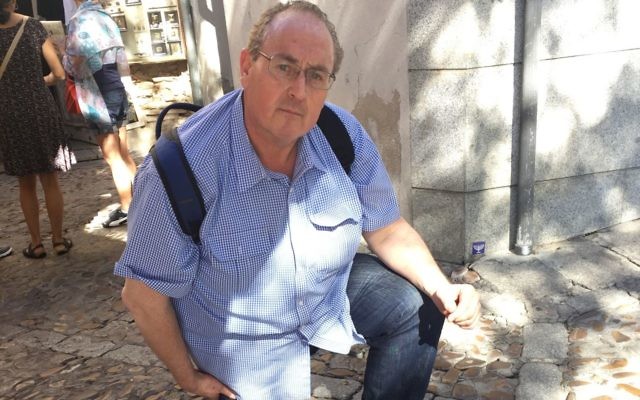Secord’s tour of Europe
UNDERSTANDING European Jewish history is key to understanding the Australian Jewish community, according to Deputy Leader of the Opposition in the Legislative Council Walt Secord.
UNDERSTANDING European Jewish history is key to understanding the Australian Jewish community, according to Deputy Leader of the Opposition in the Legislative Council Walt Secord.
Secord, who is the deputy chair of the NSW Parliamentary Friends of Israel and a former AJN journalist, recently returned from a personal study tour of Jewish and Muslim sites of interest in Spain and Germany.
His travels in Spain took him to Toledo’s Jewish Quarter, where he visited the Sephardi Jewish Museum and one of Europe’s earliest synagogues, Santa Maria La Blanca. In Cordoba he toured several sites including the Cordoba Synagogue and monuments to philosopher Moses Maimonides (Rambam), while in Granada he visited the Jewish Quarter.
“It was overwhelming to see the extent of Jewish heritage in Spain during the Moors and Christian era,” he said.
“I was aware of Jewish life there during the 1400s due to readings, but I was astounded by the vibrant community destroyed by the Inquisition.”
In Germany, Secord visited the Neue (New) Synagogue, Berlin transportation points to the concentration camps, the Jewish Museum Berlin and its Holocaust memorial – the Garden of Exile and the national Holocaust memorial.
“Understanding and exploring Jewish European history is key to understanding the Australian Jewish community; that is why I will continue to seek out Jewish history and experiences in my career,” he said.
“That is why I was humbled to have visited Israel and Yad Vashem twice and been to Auschwitz-Birkenau.”
While in Berlin, Secord also visited the city’s largest refugee processing centre, one of 79 in the capital. Berlin alone will absorb 40,000 Syrian refugees by December.
He said he was impressed by “the pragmatic acceptance” of most Germans and their readiness to assist in the refugee crisis, comparing the current openness and acceptance to the nation’s darkest days.
In an op-ed that originally appeared in The Australian, he said: “The memory of the Holocaust remains, rightly, etched not only in the minds of everyday Germans but in the very fabric of their cities.
“As I walked among the stone columns of the Berlin Holocaust Memorial, the Berlin Jewish Museum’s Holocaust memorial chamber, and through Israeli artist Menashe Kadishman’s disturbing installation Fallen Leaves, it did not escape me that Germany is disproportionately shouldering the response to the refugee intake.
“It is apparent that there is a collective German fear – particularly by conservative [Chancellor Angela] Merkel – that as a nation, it cannot be callous. Not in light of the Holocaust.”
GARETH NARUNSKY


comments